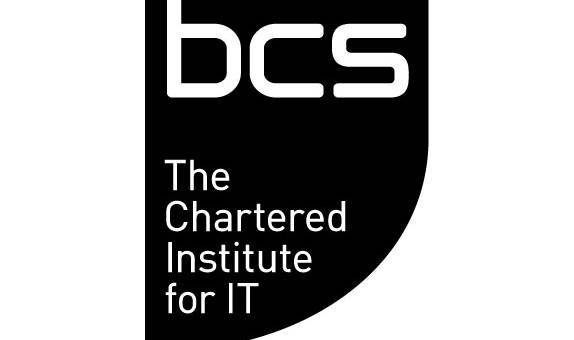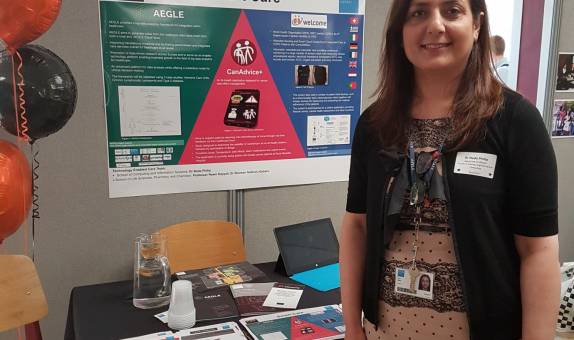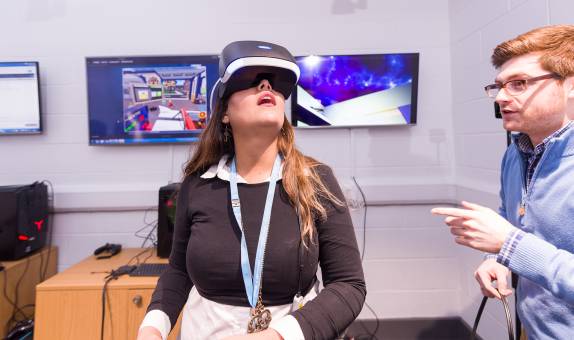Cyber Security & Digital Forensics BSc (Hons)

Teaching Excellence Framework (TEF) Gold award
Our commitment to high quality teaching has been recognised with a TEF Gold rating. The University has received an overall rating of Gold, as well as securing a Gold award in the framework's two new student experience and student outcomes categories.
Why choose this course?
Have you considered a career at the cutting-edge of the fight against cybercrime? There's an increasing demand for skilled cyber security professionals with the expertise that this course offers.
On this course, you'll study how computers and technology can be used to investigate, prevent and manage cyber attacks. You'll develop web technology programming skills and study specialised tools and operating system environments. You'll examine encryption algorithms, public-key cryptography, network security, endpoint security and digital forensics. Project themes include security and vulnerability analysis, mobile app security and cyber intelligence analysis.
Practical studies include ethical hacking (such as password cracking, vulnerability scanning, social engineering and system exploits) and Security Operations Centre (SOC) functions, such as threat intelligence, threat hunting, SIEMs and incident response.
| Attendance | UCAS code/apply | Year of entry |
|---|---|---|
| 3 years full time | G4N1 | 2024 (Clearing) 2025 |
| 4 years full time including sandwich year | G4NC | 2024 (Clearing) 2025 |
| 4 years full time including foundation year | G4NX | 2024 (Clearing) 2025 |
| 6 years part time | Apply direct to the University | 2024 (Clearing) 2025 |
Please note: Teaching on this course may take place on more than one KU campus.
| Main Location | Penrhyn Road |
Reasons to choose Kingston University
- Academic Centre of Excellence in Cyber Security Education (ACE-CSE) Silver Award recognition by NCSC – part of GCHQ and leading towards the Gold Award.
- Kingston University has a dedicated cyber security and digital forensics lab where you'll have access to industry standards software and tools, such as Splunk, Nessus, Kali Linux, Autopsy, FTK (Forensic Tool Kit), etc.
- This degree is aligned with industry-recognised certifications (i.e. CompTIA, EC-Council, Splunk and more), giving your career a head start.
What you will study
Year 1
Year 2
Optional sandwich year
Year 3/4
In the first year of this degree, students are introduced to computer security, digital forensics and legal aspects of forensic investigative processes. They will also develop web technology (e.g. Javascript, HTML, CSS), Java and Python programming skills; and gain a practical insight into the use of specialised tools and operating system environments. Examples include hex editors, hash functions, Forensic Tool Kit (FTK), Windows 10, Linux, Android, iOS and more.
Core modules
Programming I: Thinking Like a Programmer
30 credits
We designed this module to establish a foundation for key Programming Concepts. We do not assume prior experience of programming, as we know you will all have widely different levels of existing knowledge. The module is designed to be accessible to a beginner while still being exciting for an experienced coder.
We are excited to be able to deliver this module using Kingston's own home-grown learning environment for programming, NoobLab. NoobLab gamifies your learning, making programming enjoyable and accessible for all existing ability levels – no other university offers this platform or unique approach to learning:
You will learn a variety of programming languages. In the first few weeks, we will use visual blocks that will allow you to construct programs and focus on thinking like a programmer rather than getting bogged down in grammar and syntax. Then, with these skills established, you will learn Python, Javascript and optionally Java, solving "Code Kata" style programming challenges on a weekly basis. This will equip you to build a graphical card game as your capstone project for the module.
Computing Fundamentals
30 credits
In this module, you will develop a strong foundation of how computers work in terms of hardware and software, and the formal logic behind it. You will have the opportunity to meet several different experts in the topics that form the basis of modern-day computer science.
To equip you to excel in your course, the subject experts will guide you in an exploration of digital logic, data processing, representation and storage, essentials of computer software and hardware including architectural concepts and relevant data structures and algorithms.
You will develop this knowledge further through the introduction of databases, web development, and the underlying technologies of modern-day communication, including Ethernet, Wi-Fi and the Internet.
Cyber Crime and Digital Forensics
30 credits
The Cyber Crime and Digital Forensics module will introduce you to the principles and practices of cyber forensics, providing a contextual setting for further modules. In particular, the module has a theoretical perspective (introducing core security concepts and principles, and covering legal, professional and ethical issues, the nature of digital crime and the role of the forensic investigator) as well as a practical technical perspective.
This module presents a methodological approach to digital forensics including searching, imaging, acquisition, preservation, analysis and reporting of digital evidence using a variety of forensic tools such as FTK, Autopsy, Volatility. During this module you will be developing essential skills required for careers in Digital Forensics Investigation, Incident Response and Malware Analysis.
Professional Environments 1
30 credits
The goal of the Professional Environments module is to prepare students for professional practice. It will firstly ensure they acquire suitable employability assets and secondly equip them with an understanding of the role of a professional in society and the role of professional bodies.
While the bulk of the taught programme focuses primarily on domain knowledge, the Professional Environments module focuses on developing key skills, personal qualities (e.g. commercial awareness, reliability and punctuality, understanding the centrality of customers and clients), and professional knowledge including the need to engage with continuing professional development. With such assets, students will generate a CV, an employment portfolio, and a professional online presence.
Being a professional also means understanding the key legal, ethical and societal issues pertinent to the domain, and understanding the need for continuing professional development (CPD) especially when technology develops at such a rapid pace. The module is designed to support different domain areas and to integrate experience from other professions. The subject areas being studied demand a global perspective which encourages the inclusion of our diverse of communities and national practices.
Reflecting the fact that team working is ubiquitous in the modern workplace, a significant proportion of the assessment work on the course is based around group work. There is considerable evidence that group work promotes a much deeper engagement with taught content and the Future Skills report shows how it is embedded in working practices. It also encourages the development of diverse learning communities with computer science, cybersecurity and digital media students working in close proximity. This module will therefore introduce students to best practice in group working covering how to approach group work, how to understand yourself, how to deal with different types of people, and methods of selecting and managing groups.
In the second year, students will study ethical hacking through practical activities (e.g. password cracking, port scanning, anonymous browsing, keyboard logging, screen capture, packet interception, social engineering and malware).
Core modules
Ethical Hacking
30 credits
The highly technical Ethical Hacking module commences by introducing you to the fundamental steps and frameworks needed for the practical and ethical hacking exercises. In particular, the module introduces you to techniques and methods to identify vulnerabilities and potential threats in computer systems, networks, and applications using a variety of tools, such as Nessus, Burp Suite, Nmap and Metasploit Framework. You will be developing skills that help organisations to proactively identify and address security weaknesses before they can be exploited by malicious attackers.
Also, you will be introduced to the Android Security concept and practice the reverse engineering process using tools such as Apktool to analyse the code and understand how the application works. You will then be introduced to automation and scripting using the Python programming language for various ethical hacking activities, examples of which include: password cracking, port scanning, anonymous browsing, keyboard logging, screen capture, Windows log analysis and packet interception.
The module assessments provide an opportunity for students to work on real world problems and to develop the essential practical skills required of a cyber security professional.
Computing Systems
30 credits
This module takes you on a journey, from underlying computer architecture through to operating systems and networking and finally on to cloud computing. We designed this module to enhance your understanding of how modern computer systems are designed and used.
You will explore the essential features of each of these technologies and acquire both theoretical and practical knowledge. In addition, you will also develop knowledge of containerisation, parallel programming and algorithm complexity to make use of new parallel and cloud computing architectures to design application scenarios for today's modern computing environments.
Professional Environments 2
30 credits
This module is designed to encourage you to look outwards to industry and employability, and make you more confident when facing the job market upon graduation. You will develop excellent group working skills, broaden your understanding of industry and its requirements, and enhance your project management skills.
It is always exciting to watch the groups collaborating as they produce their entrepreneurial projects for Kingston University's "Bright Ideas" scheme; students involved in this have won awards, producing fascinating artefacts for their remaining term and exploring new and different areas within their course field.
The module is an opportunity to work with many different students, working in subject areas that are innovative and unusual. Very often, a student may discover something they did not know that they could achieve. This triggers new learning and an added confidence that was not previously there. Those are the times that the learning is strongest, and our pride in the student, the greatest.
Optional modules
Database Driven Application Development
30 credits
In this module you will learn to design and build full stack web applications. The first half of the module will be dedicated to relational databases which are crucial to any company or organisation, and form the back-end persistence layer of the vast majority of modern applications. You will learn the fundamental concepts and principles of database design before moving on to building the databases and writing queries to extract data from the database.
Once you have the foundation of database development, the module will move on to teaching you to develop and deploy web based applications that use an MVC design pattern. You will learn server- and client-side development, how to access the database/persistence layer, and techniques and technologies that span the whole stack. By the end of the module you will have gained the skills to build a complex, scalable and robust web application driven by a back-end database.
Networking Concepts
30 credits
With a strong emphasis on understanding the Internet protocols, the Networking Concepts module will develop your understanding of the basic principles of networking.
You will become familiar with current LAN and WAN technologies and their role in building domestic and corporate networks. This knowledge will underpin the skills required to design and simulate small company networks including identifying the physical components required and to design an appropriate IP addressing schemes for such network.
It will also underpin your understanding of how network services such as mobile apps and network-based games are implemented.
Core modules
Industrial Placement
60 credits
This module is an essential course programme component for students on the sandwich route of an honours degree "with professional placement". It is a key element in providing an extended period in industry gaining real world employability skills. Students are supported both before and through their placement by the Placement Team. Students that successfully complete their placement year will graduate with a four-year sandwich degree.
In the final year, students will study encryption algorithms, public-key cryptography systems, network security techniques, security policies as well as live, network and mobile forensics in the context of a security operations centre. They will also complete an individual 'capstone' project. This project is a showcase opportunity in which students undertake a research and development project of their choice. They will develop a tangible and noteworthy artefact, that can be showcased during interviews for placements, internships or full-time roles. Examples topic themes include crypto currencies, mobile privacy, blockchain technologies, malware etc.
Core modules
Cryptography and Network Security
30 credits
This is a core module in the Cyber Security and Computer Forensics field which explores the major challenges to computer security. It familiarises you with a range of cryptographic algorithms and protocols, firewall and access-control architectures and methods to assess and improve network and application security. This knowledge will allow you to implement and evaluate security controls and develop secure policies for corporate networks.
Threat Hunting, Analysis and Mitigation
30 credits
In this module, students will learn cyber threat intelligence to design and deploy a Security Operations Centre (SOC). The first half of the module will be devoted to network inventory management and threat scanning, which are the very first steps to designing resilient IT systems.
You will also learn risk analysis and management to minimise the impact of cyberattacks. Moreover, operating system hardening techniques following the regulators, government and industry standards will be studied, analysed and implemented in real network scenarios.
Once you develop a basic skill in threat hunting, data analytics tools will be explored. You will use Splunk and ELK Stack to identify any unusual activities within the IT system boundary in real time. You will then develop skills in data backup plans in the most secure way. The incident response plan and recovery plan are very integral parts of cyber threat analysis. We will study recommendations by industries and National Cyber Security Centre (NCSC) UK and implement them in a simulated environment.
The ultimate aim of this module is to prepare students as SOC Analysts for small, medium to big tech companies.
Individual Project
30 credits
The goal of the module is to further develop skills in organisation, timekeeping, research literature, developing and critically analysing results as well as reporting work verbally and in a written format. The end result will be an artefact or artefacts which demonstrate creativity and technical competence as well as a technical report.
Optional modules
Internet Protocols and Services
30 credits
This module focuses on enterprise networks; the internet protocols and services which will develop the understanding of how the TCP/IP internet protocol suite achieves the interconnection of geographically separate computers over networks of arbitrary topology and technology. This knowledge will underpin the design skills required to design such company networks including identifying the physical components required and designing appropriate IP addressing schemes. The module introduces wireless and high-speed networks and how these are used to deliver a variety of business applications.
On successful completion of the module, you will be able to:
- Explain the basic principles of internetworking, and describe the role of each protocol within the TCP/IP protocol stack.
- Identify the main hardware network components used to construct enterprise networks, and be able to design a network for a small enterprise.
- Demonstrate a thorough understanding of IPv4 and IPv6 addressing, sub-network addressing, and be able to design an IP addressing scheme for a domain.
- Demonstrate how internet application services (e.g. HTTP) available on any of today's advanced operating systems depend on and interact with other TCP/IP protocols, and explain the role of DNS and DHCP services in the configuration of network hosts.
- Demonstrate an awareness of the services available from the internet and network providers to support business and homes and be able to critically reflect on the legal, social, economic and ethical issues associated with the use broadband services.
Software Development Practice
30 credits
This module will expand your skill set and your awareness as software industry professional, using industry-relevant tools, know-how, as well as theoretical areas. Our focus is on real-world experience, and preparing you to become a skilled graduate, regardless of the job roles you are considering or the skills you want to expand on within the computing domain.
This will empower you to become better at whichever role you are aiming at; developer, analyst, designer, project manager and so on. This is not a code-centric module; the skills in this module are more concerned with efficiently working within a software development team and managing the code produced rather than necessarily writing code yourself.
You will explore the latest practices for making more dependable, reusable and scalable software systems, and how to configure, maintain and support such systems. We will also discuss topics on software architecture, and how to select the right architecture based on the system requirements. We will also cover popular industry practices like refactoring, software measurements, DevOps, Microservices, and software testing approaches, and even a bit of Quantum computing.
The workshop activities promote collaborative learning. Within the first teaching block you will explore a specific topic or tool every two weeks. In the second teaching block, you will work as a team, taking up a role as a manager, developer, analyst, designer, security expert or tester and work on a software development case study.
Most of the topics and tools you come across in the module are linked to skills advertised as essential or desirable by software industry employers. They are also closely linked to interview questions or assessment centre activities. Overall, the main focus of this module is to equip you to become a skilled and knowledgeable IT professional capable of facing challenges, while maintaining a holistic, practical perspective on the issues at hand.
Digital Entrepreneurship
30 credits
Entrepreneurship is a major driving force in creating economic growth and this module illustrates how to work in an entrepreneurial fashion. At the heart of entrepreneurship is innovation, which can come in many forms. Sometimes this can be an incremental but generally gives significant improvement to the customer. Alternatively it is a new breakthrough or transformational innovation. Incremental innovation is aimed at increasing the value of a product or service, to add more value and thereby creating new and superior value chains. Breakthrough innovation often creates new categories of product, or transforms the historical ways of doing things.
From this foundation, the module proceeds to explain how to develop a strategy, not only to satisfy the critical needs that organisations have, but also to explore the application and use of improved value chains using the concepts of corporate venturing (spin-out/intrapreneurship) and entrepreneurship (new venture creation).
However it is not simple to start a new company. Especially the tech branch is characterised by fast developments, shifts of focus and low barriers to entry, where holding back from "bleeding edge" is essential and is one of the important differentiating factors between Tech Entrepreneurship and other forms of entrepreneurship. This means that one can no longer count on "good luck", and insight, understanding, knowledge and a systematic approach all have to be learnt.
This module will convey the concepts needed for roles in analysis, consultancy and management in technology environments, plus the necessary knowledge to work successfully in an innovative company, as well as providing a good background for new venture creation (Entrepreneurship) for those considering self-employment or founding new technology firms
Please note
Optional modules only run if there is enough demand. If we have an insufficient number of students interested in an optional module, that module will not be offered for this course.
Foundation year
If you would like to study computing at Kingston University but are not yet ready to join the first year of a BSc (Hons) course, you can include an extra foundation year within your chosen degree. Please see the foundation year course page for details of modules.
Future Skills
Knowledge to give you the edge
Embedded within every course curriculum and throughout the whole Kingston experience, Future Skills will play a role in shaping you to become a future-proof graduate, providing you with the skills most valued by employers such as problem-solving, digital competency, and adaptability.
As you progress through your degree, you'll learn to navigate, explore and apply these graduate skills, learning to demonstrate and articulate to employers how future skills give you the edge.
At Kingston University, we're not just keeping up with change, we're creating it.

Accreditation
This degree has been accredited by BCS, The Chartered Institute for IT. Accreditation is a mark of assurance that the degree meets the standards set by BCS. An accredited degree entitles you to professional membership of BCS, which is an important part of the criteria for achieving Chartered IT Professional (CITP) status through the Institute. Some employers recruit preferentially from accredited degrees, and an accredited degree is likely to be recognised by other countries that are signatories to international accords. This degree is accredited by BCS for the purposes of fully meeting the academic requirement for registration as a Chartered IT Professional.
This degree has been accredited by BCS, on behalf of the Engineering Council for the purposes of partially meeting the academic requirement for a Chartered Engineer (CEng). Accreditation is a mark of assurance that the degree meets the standards set by the Engineering Council in the UK Standard for Professional Engineering Competence (UK-SPEC). An accredited degree will provide you with some or all of the underpinning knowledge, understanding and skills for eventual registration as an Incorporated (IEng) or Chartered Engineer (CEng).
Entry requirements
If you would like to join us through Clearing 2024, please call our Clearing line on 0800 0483 334 (or +44 020 8328 1149 if you are calling from outside the UK) and speak to our friendly and knowledgeable hotliners who will be able to provide information on available courses and will guide you through your options.
Please note the entry requirements listed below are for 2025 entry only.
Teaching and assessment
Scheduled learning and teaching on this course includes timetabled activities including lectures, seminars and small group tutorials.
It may also include placements, project work, workshops, workshops in computer labs, and laboratory workshops.
Who teaches this course
The course is taught at the School of Computer Science and Mathematics.
The School of Computer Science and Mathematics is driven by the philosophy of 'learning through making'; we focus strongly on facilitating a hands-on experience, student led and owned product portfolios and producing industry-ready graduates.
We utilise a range of innovating teaching and learning approaches in our invigorated and modernised degree programmes; combining studio practices, project-based learning, and context driven lectures to facilitate an informed approach to problem solving.
Postgraduate students may run or assist in lab sessions and may also contribute to the teaching of seminars under the supervision of the module leader.
What Kingston Cyber Security students say about the course
Facilities
There is a wide range of facilities at our Penrhyn Road campus, where this course is based.
The new dedicated cyber lab provides the student with Linux/ Windows dual-boot computers, access to the internet, digital forensic hardware and professional software such as the full commercial version of Forensic Toolkit (FTK), Splunk Enterprise server, Autopsy etc.
Students are able to experiment within an unconstrained environment in terms of computer administration and networking access. There are opportunities to gain vendor certification for mobile forensics (XRY Logical) and FTK.
You will have access to a modern environment with the latest equipment, including:
- computing laboratories - fully equipped with fold-flat LCD screens, data-projection systems and high-spec processors
- state-of-the-art hardware and the latest software, including:
- development software and tools - such as Linux, Microsoft.net, Eclipse, tools for Android and iOS, UML and CASE tools
- ethical hacking and pen testing environments, including Kali Linux and Metasploit
- a mix of cable and wireless LAN technologies, and quantum key distribution experiment tools for secured communication.
- the library - offering subject libraries, online database subscriptions and resource materials.
Read about our games lab, which includes the latest Sony and Microsoft software as well as high-tech equipment such as PSPs and large screens.
Our dedicated team of IT technicians support the labs and are always on hand to provide assistance.
Course fees and funding
Additional costs
Depending on the programme of study, there may be extra costs that are not covered by tuition fees which students will need to consider when planning their studies. Tuition fees cover the cost of your teaching, assessment and operating University facilities such as the library, access to shared IT equipment and other support services. Accommodation and living costs are not included in our fees.
Where a course has additional expenses, we make every effort to highlight them. These may include optional field trips, materials (e.g. art, design, engineering), security checks such as DBS, uniforms, specialist clothing or professional memberships.
Academic Centre of Excellence in Cyber Security Education
Kingston University's commitment to promoting excellent cyber security education has been recognised with a prestigious silver award from the National Cyber Security Centre (NCSC), which is part of GCHQ.
The recognition means the University has been named an Academic Centre of Excellence in Cyber Security Education (ACE-CSE) by the UK's lead technical authority on cyber security – a feat achieved by only 11 other higher education institutions across the United Kingdom. The ACE-CSE programme aims to help close the UK's cyber skills gap by supporting the next generation of cyber experts.
Find out more about the University's Cyber Centre.
After you graduate
Cyber security career opportunities are diverse and exist across many sectors. Examples include government, finance, entertainment, media, law and intelligence services.
Links with business and industry
Computing qualifications are amongst the most versatile and enable graduates to find employment in a wide spectrum of careers ranging from systems and business analysts, and software engineers, through to programmers and network specialists in a wide range of public and private sector industries.
Our curriculum is largely applied in nature with many case studies chosen for their topicality and relevance to industry such as information systems design, programming, networking, and implementation issues. Working on case studies designed to simulate the working environment, typically in teams, gives students experience of applying their skills to real-world problems.
To further set the material in context as well as inspire our students leading practitioners from industry, such as Google and IBM are invited to give guest lectures and workshops. The school hosts a local BCS chapter and several members of the School are involved with the institute at corporate level.
Events and lectures
Embedded within the academic year are two Enrichment Activity Weeks. The first is in week 6 of Teaching Block 1 and the second in week 12 of Teaching Block 2, which include Careers and Employability events. These provide students typically with the opportunity to explore their CV and interview skills and look forward and plan for both industrial placement and their employment after university.
Our award-winning careers service offers a range of events, which include; employers on campus to promote internship, placement and graduate opportunities; profiling specific roles within industry; and exposing students to employers and building skills and knowledge. The current set of events include Part-time jobs fair, Guest lectures, The Big Kingston Careers Fair, Enrichment Week activity, Creative Conference, Work abroad fair.
In addition a range of software development competitions and hackathon type events are organised by the staff and various societies.
Placement case study – Lillith Vanian-George
Placement company: Ernst & Young
Work placement year
How you can work in industry during your course
Placements:
- provide work experience that is relevant to your course and future career
- improve your chances of graduating with a higher-grade degree
- enhance your CV
- lead to a graduate job
- enable you to earn a year's salary whilst studying (the vast majority of placements are paid)
- help you to select your final-year project.
"To be successful, tomorrow's leaders will need to be far more rounded individuals than ever before. They will collaborate in pursuit of shared goals. They will guide, challenge and support...They will have an appetite for change and a hunger for continuous improvement, and they will have an ethos of learning and development..." Jeremy Darroch, Former Chief Executive, Sky.
"Doing a placement year effectively gives you one foot in the door of a future job and to stand out from the crowd... as well as enhancing my CV... and future interviews. It's a great motivator to be successful in my studies as it only serves to open even more doors and gain more skills." Placement student at Jagex Games Studios Ltd.
There is a lot of support available for students looking to secure a placement (e.g. a jobs board with placement vacancies, help with writing CVs and mock interviews). Getting a placement and passing the placement year are ultimately the student's responsibility.
Examples of placements
Placements can be with large multinational companies, international companies, local companies and small start-ups; offering a diverse range of posts. Here are some examples of employers and roles:
| Construction-based placement employers | Construction-based placement roles |
|---|---|
| RG Group Multiplex Costain Willmott Dixon Fluor |
Assistant site manager Assistant trades package manager Assistant logistics manager Health and safety officer Construction engineer |
| Science-based placement employers | Science-based placement roles |
| Reckitt and Benckiser GSK Drug Control Centre Minton Treharne and Davies Ltd Various local and international hospitals |
Bioanalytical sciences Lab assistant Pharmacy assistant Sports coach |
| Engineering-based placement employers | Engineering-based placement roles |
| Airbus BAM Nuttall Nissan Bosch Wozair |
Analysis of aircraft structure Construction resources specialist Site engineer assistant |
| Computing and IS-based placement employers | Computing and IS-based placement roles |
| Disney Sony Interactive Entertainment Europe IBM McKinsey Intel |
Database coordinator Software developer Website developer App developer |
| Mathematics-based placement employers | Mathematics-based placement roles |
| Lloyds Banking Group AXA Allianz PAU Education, Spain |
Analyst Investment solutions Research analyst Accounts assistant |
Key information set
The scrolling banner(s) below display some key factual data about this course (including different course combinations or delivery modes of this course where relevant).
Course changes and regulations
The information on this page reflects the currently intended course structure and module details. To improve your student experience and the quality of your degree, we may review and change the material information of this course. Course changes explained.
Programme Specifications for the course are published ahead of each academic year.
Regulations governing this course can be found on our website.



















